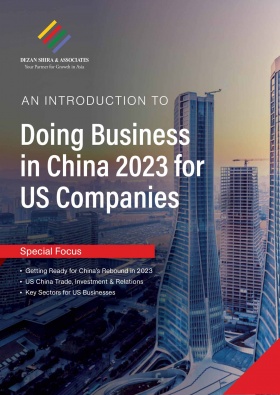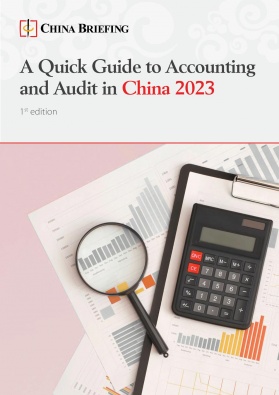Applying for the Preferential Individual Income Tax Policy for High-End and In-Demand Talent in Hengqin, Zhuhai
The Hengqin Cooperation Zone in the southern city of Zhuhai has released a guide for companies to prepare to apply for the preferential individual income tax policy available to high-end and in-demand talent in the region. The guide provides information on the start time and deadline for submissions, as well as the required materials for the application. We summarize the eligibility requirements and documents needed to apply for the Hengqin preferential income tax policy in 2023.
UPDATE (May 23, 2023): On May 22, 2023, the official website of Hengqin Cooperation Zone announced that the application for the preferential IIT policy for high-end and in-demand talent in Hengqin for the years 2021 and 2022 shall start on May 22, 2023, and end on June 11, 2023. The deadline for the company eligibility review will be on June 13, 2023.
The Hengqin Guangdong-Macau In-Depth Cooperation Zone (the “Hengqin Cooperation Zone”) has released a brief guide for the implementation of the preferential individual income tax (IIT) policy that is available for certain talent in the region.
The preferential IIT policy, which was first introduced in January 2022, allows “high-end” and “in-demand” talent working within certain industries to waive the IIT burden on the portion of the income in excess of 15 percent. This policy will be implemented retroactively from January 1, 2021, to December 31, 2025. The income can be derived from comprehensive income (including wages and salaries, labor remuneration, author remuneration, and royalties), business income, and talent subsidy income. However, this income must be garnered in the Hengqin Cooperation Zone.
In early April 2023, the Hengqin Cooperation Zone released a set of interim implementation measures for the preferential IIT policy, which detail the eligibility requirements for foreign and domestic high-quality and in-demand talent working in the Hengqin Cooperation Zone to enjoy the preferential IIT policy. They also explain how the local authority will implement a quota and list system to identify and approve talents for the policy. Talent and their companies must comply with these rules when applying for the policy.
These interim rules were released shortly after the list of encouraged industries was published, which outlines the 185 industries that the talent must work in, in order to be eligible for the policy.
The new guide acknowledges that the process for implementing the policy may be lengthy due to the relatively long period in which the policy is implemented and the wide scope of talent involved, and therefore urges companies and individuals involved to begin preparatory work for the application as soon as possible.
Below, we outline the preparatory work that needs to be completed in order to enjoy the preferential IIT policy. For information on who is eligible for the policy, please refer to our articles on the interim rules and the eligible industries.
Applying the preferential IIT policy
Timeline for declaration
The process for submitting the declaration of the preferential IIT policy begins on May 22, 2023, and will end on June 11, 2023 for individual applicants. for is planned to begin in mid-May, For the examination and review of the company’s eligibility, the deadline is June 13, 2023.
Materials required for declaration
Both the individual talent and the company they work for must provide documents proving that the talent’s qualifications and the company’s industry meet the requirements for the IIT policy.
The materials required are outlined in the table below.
| Required Application Materials for Preferential IIT Policy | ||
| Entity | Documents and materials | Note |
| Company | Unified social credit code certificate | Unique 18-digit number assigned to all companies in China. |
| A description of the industry fields listed in the Catalog of Encouraged Industries in the Hengqin Guangdong-Macao Deep Cooperation Zone, or public management and service fields that facilitate the life and employment of Macao residents, and their supporting materials. | Companies must show that they have “substantial operations” in one of the permitted fields in the Hengqin Cooperation Zone, as defined in the Notice of the Ministry of Finance and the State Administration of Taxation on the Preferential CIT Policies of the Hengqin Guangdong-Macao In-Depth Cooperation Zone (Cai Shui [2022] No. 19). | |
| Substantive Operation Self-Assessment Commitment Form (download attachment 2 from here). | Filled in and chopped. | |
| Company letter of commitment (download attachment 3 from here). | Signed and chopped. | |
| Individual (talent) | Personal application form (download attachment 4 from here). | Filled in and signed by the individual. |
| The labor contract (subject to employment registration and filing), employment agreement, service agreement, or other relevant certification materials. | Employment documents must have a validity of at least one year.
The signatory and taxpayer of these documents must in principle be the same; if they are different, then documents proving the affiliation and association between the upper and lower levels of the company group, the head office, or subsidiaries, and so on. |
|
| Valid Chinese work permit (for foreign candidates only). | ||
| Materials proving status as high-end or in-demand talent (see table below). | ||
| Note: Original and photocopy of all documents must be provided | ||
Applicants must also provide proof of their status as a high-end or in-demand talent. The documents required, depending on the type of talent, are detailed in the table below.
| Materials Required for Proof of Status as High-End or In-Demand Talent | |||
| Talent | Eligibility requirements | Documents required | Note |
| High-end talent | Be at a “leading level” in a certain field or profession and have made outstanding contributions and have received societal recognition. | Certificate of high-level talent recognized by the cooperation zone. | Assessments of these criteria are estimated to start in 2023; specific identification methods will be formulated separately by the Hengqin Cooperation Zone’s executive committee. |
| Have an annual income of at least RMB 500,000 (approx. US$72,682) in the Hengqin Cooperation Zone. | Subject to verification by the tax office. | ||
| In-demand talent | Educational talents | Degree certificates and academic certificates (both). | Applicants with a university diploma from a foreign institution, an institution based in Hong Kong, Macao, or Taiwan, or from a Sino-foreign joint institution, must have the diploma certified by the Overseas Study Service Center of the Ministry of Education. |
| Professional and technical personnel |
|
||
| Skilled personnel |
|
For professional qualifications for professional and technical personnel, provide a screenshot of the online verification page of the examination institution’s qualifications (URL must be visible) or the examination registration certificate form instead of the review form, in accordance with the professional titles of each level (download attachment 5 here). | |
Preparing for the preferential IIT policy application
The Hengqin Cooperation Zone has yet to finalize some details for the implementation and eligibility criteria of candidates for the IIT policy, such as the specific scope and definition for being at a “leading level” in a given field.
Companies should start preparing for the new preferential policy by identifying potential candidates and gathering the necessary documentation to ensure a smooth application process. Some criteria are already clear, such as the required salary and education levels for high-level talent, so companies can begin evaluating potential candidates who meet these thresholds and have a prominent position in their field.
Another important factor to consider is whether the company qualifies as having a substantial operation within the Hengqin Cooperation Zone. This can involve collecting information about the company’s operations, personnel, accounting, property, and other relevant factors that demonstrate its presence in the zone.
Based on the experiences of other regions in China with preferential tax policies, eligibility thresholds and criteria may be rigorously assessed by authorities. Therefore, it is recommended that companies and their employees begin documenting the necessary information as early as possible to avoid delays in the application process.
(The article was first published on May 18, 2023 and last updated on May 23, 2023)
About Us
China Briefing is written and produced by Dezan Shira & Associates. The practice assists foreign investors into China and has done so since 1992 through offices in Beijing, Tianjin, Dalian, Qingdao, Shanghai, Hangzhou, Ningbo, Suzhou, Guangzhou, Dongguan, Zhongshan, Shenzhen, and Hong Kong. Please contact the firm for assistance in China at china@dezshira.com.
Dezan Shira & Associates has offices in Vietnam, Indonesia, Singapore, United States, Germany, Italy, India, and Russia, in addition to our trade research facilities along the Belt & Road Initiative. We also have partner firms assisting foreign investors in The Philippines, Malaysia, Thailand, Bangladesh.
- Previous Article Establishing an Online Presence in China – Webinar
- Next Article Understanding China’s New Regulations on Generative AI








